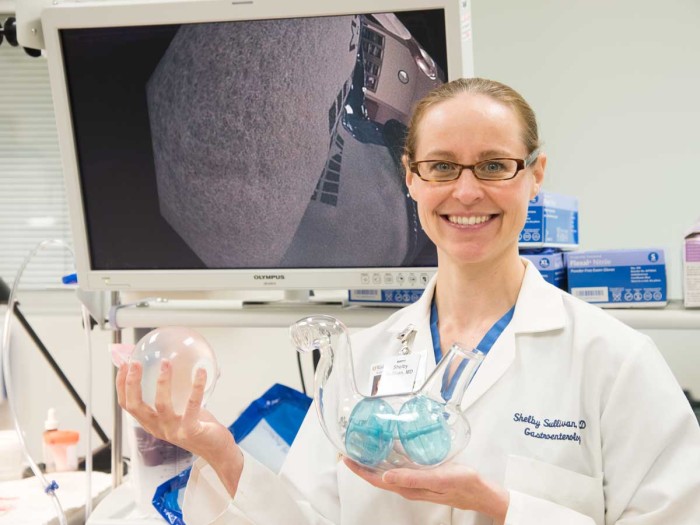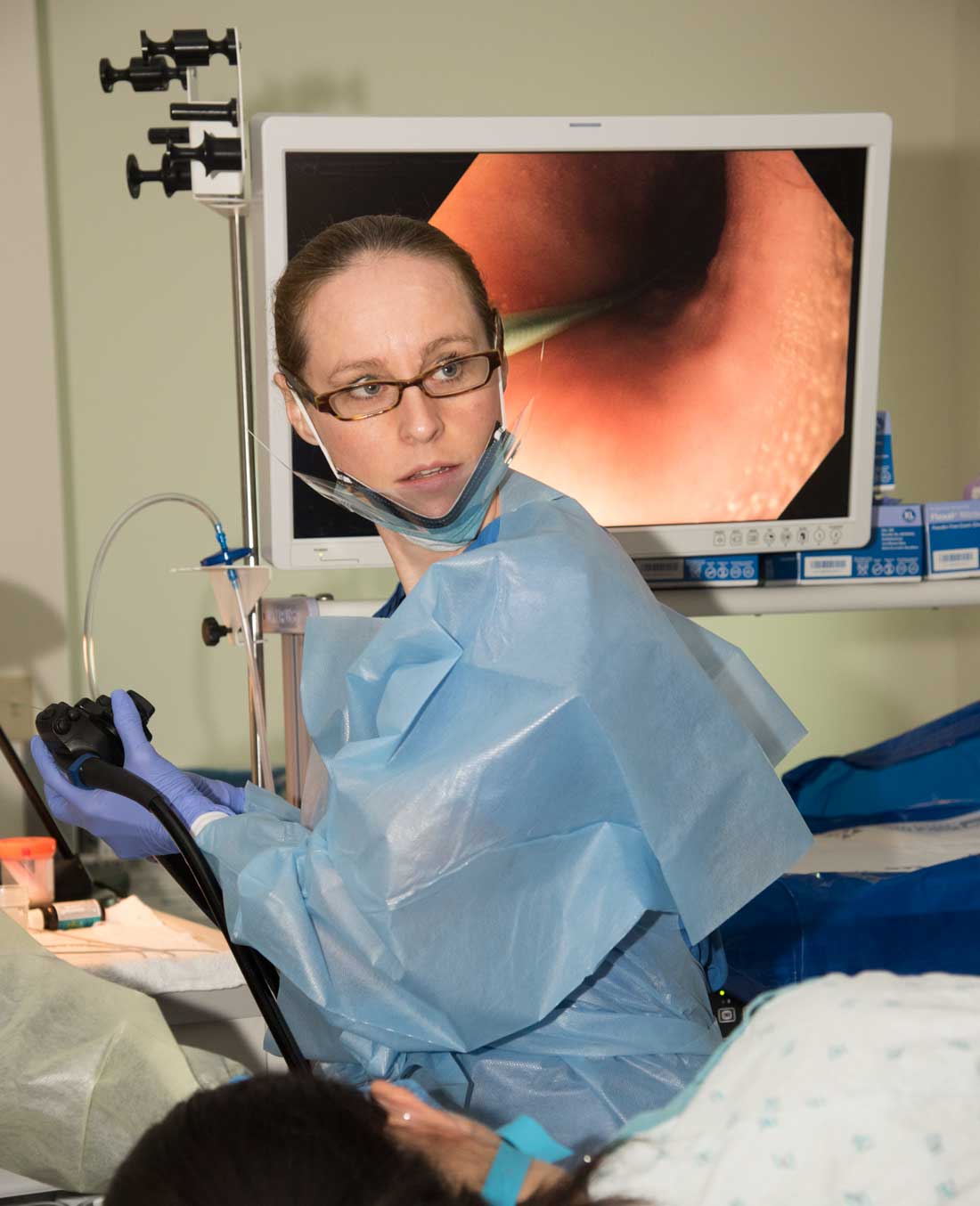New for weight loss: balloon therapy
Intragastric balloons offer alternatives to gastric bypass and other surgical procedures
 Robert Boston
Robert BostonShelby Sullivan, MD, holds models of two newly approved, nonsurgical weight loss therapies. The balloon therapies can help overweight patients who don’t want to have surgery but haven’t been able to achieve adequate weight loss with changes in diet and lifestyle.

Washington University School of Medicine in St. Louis and Barnes-Jewish West County Hospital are offering a newly approved, nonsurgical therapy to help people lose weight. The therapy involves placing special balloons into the stomach and inflating them to give patients the feeling of being full after eating small meals.
Washington University gastroenterologists at Barnes-Jewish West County Hospital have two options for so-called intragastric balloons in overweight patients who don’t want surgery but have not been able to achieve adequate weight loss with changes in diet and lifestyle.
Patients can select a single intragastric balloon device called ORBERA™, or the ReShape™Dual Balloon system. Both are potential substitutes for gastric bypass and other bariatric surgical procedures in patients who need to lose large amounts of weight for health reasons but are not candidates for surgery or don’t want to take that step. The balloons are inserted with an endoscope that is guided into the patient’s mouth and to the stomach.
“Despite the fact that bariatric surgery is very effective, there are some people who just don’t want it or are not surgery candidates,” said Shelby Sullivan, MD, assistant professor of medicine and director of bariatric endoscopy in the Division of Gastroenterology. “During the clinical research we conducted, we found that many patients equate surgery to an admission of failure, but they see the balloons more like a tool to help with weight loss the way glasses can help improve eyesight.”
The balloons remain in the stomach for six months. During that time, patients also receive intensive lifestyle therapy, which then continues for a year.
 Robert Boston
Robert Boston“When we take out the balloon, the program team helps patients maintain positive behavior changes they made while the balloon, or balloons — depending on which system a patient chooses — were in the stomach,” Sullivan said.
Otherwise, she explained, once a balloon has been removed, some people may take up old eating habits and start packing on pounds again. After a year, patients have the option to enroll in a long-term follow-up program to help maintain weight loss.
“Even after bariatric surgery, some surgery patients end up regaining significant amounts of weight,” she said. “So there’s no perfect therapy out there.”
If a patient begins to gain back too much weight, the option exists to insert another balloon.
At present, insurance does not cover the balloon therapy, though some insurance companies pay for an initial pre-procedure exam meeting with the doctor. Some insurers also pay partially for medications, laboratory tests or other referrals, if necessary.
Sullivan and her colleagues are holding monthly patient information sessions about the balloon therapy at Barnes-Jewish West County Hospital. For more information, to sign up for a session, or to schedule an appointment with a Washington University gastroenterologist, call 314-542-9318 or toll-free, 844-542-9378, or visit the program’s website.






